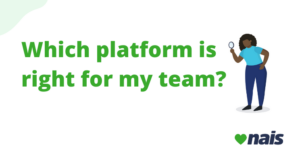So, what is employee engagement? And why should you care if employees are engaged? After all, it’s the results that count right? Wrong.

Let’s start by setting things straight, a happy employee doesn’t necessarily mean an engaged employee. There’s a difference between being happy at work because you get to use the game room, or because of the cool discounts at Starbucks… Then to actually be excited to go to work and willingly give that 110% of you to make the tiniest difference.
There is also a difference between a satisfied employee and an engaged employee. A satisfied employee may feel fulfilled with the amount of autonomous work and responsibility, working 9 to 5 shifts, and earning a monthly paycheck. However, an engaged employee will not look at the time to clock out, nor work the bare minimum. Although both terms are beneficial for a business to obtain, achieving employee engagement has a quantifiable positive result on the overall performance and growth of a company.
Definition: Employee engagement is the extent to which employees feel passionate about their jobs, are committed to the organization, and put discretionary effort into their work.
Highly engaged employees bring greater value to the organization by maintaining positive mental health, proactive energy, and enthusiasm. This in turn translates to being a driving force to companies’ increased profitability. From both the employee and employer perspective, an engaged workforce has the potential to bring the company to new heights.
What does it mean for the employer to have engaged employees?
It is important to know, that employee engagement is measurable.
How? Through surveys, studies have found that companies scoring highly in employee engagement have a 6% higher net profit margins. Moreover, from an HR point of view, engaged employees result in increased intangible benefits. For example, higher employee retention, increased customer satisfaction, lower absenteeism, and better employee mental health.

What does employee engagement mean?
The biggest differentiation between an engaged employee and an unengaged employee is level of care. Naturally, engaged employees put in the extra mile voluntarily. An engaged employee feels proud of their job and their workplace. Engagement leads to time flying by at the office and voluntarily adding extra effort to their daily tasks. This keeps employee’s mental health positive and motivated, which leads to an overall increase in employee happiness and satisfaction.
The importance and benefits of an engaged workforce are key to unlock unlimited performance and profitability levels.
As a manager, recognize that employees are the most valuable asset of your company. It is important to trust in your goal, but never lose sight of those who are supporting it.
To learn more about appreciation in the workforce, download our Ebook.
Written by Tamryn Mounier.
Want to suggest an article or collaborate?
Feel free to email me at tamryn.mounier@nais.co















